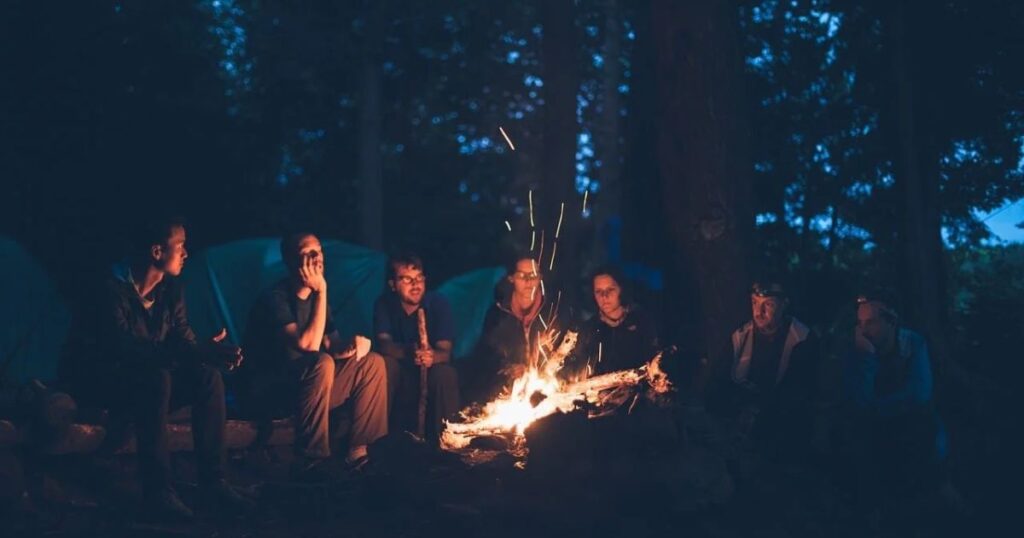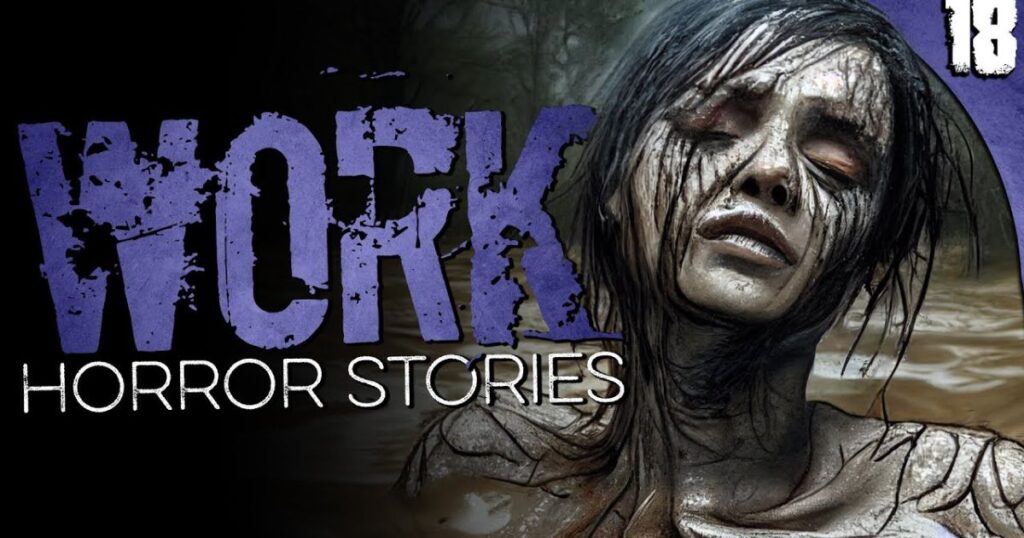Trails Carolina Horror Stories are accounts of abuse and neglect within the wilderness therapy program. These stories highlight allegations of physical and emotional mistreatment, including prolonged restraints and denial of basic needs like food and medical care.
Trails Carolina Horror Stories detail disturbing incidents of mistreatment and danger experienced by participants. These accounts include reports of physical and emotional abuse by staff members, as well as instances of students being exposed to hazardous conditions in the wild without appropriate safeguards or support.
What were Trails Carolina Horror Stories all about?
Trails Carolina Horror Stories refer to a series of unsettling accounts and allegations surrounding the Trails Carolina Horror Stories wilderness therapy program, located in North Carolina.
These stories paint a disturbing picture of abuse, neglect and dangerous conditions experienced by some of its participants, often troubled adolescents seeking therapeutic intervention.
The horror stories encompass a range of troubling incidents, including reports of physical and emotional mistreatment by staff members. Allegations suggest that some students were subjected to prolonged physical restraints, solitary confinement and forced labor without proper supervision or support.
Moreover, some former participants have come forward with claims of being denied access to fundamental necessities such as food, water, and medical care, raising serious concerns about their well-being and safety within the program.
In addition to the allegations of abuse, Trails Carolina Horror Stories also describe hazardous conditions faced by students in the wilderness.
Participants recount experiences of enduring extreme weather without adequate gear or shelter, as well as encountering dangerous wildlife without sufficient protection. Tragic incidents during outdoor activities, such as rock climbing and hiking, have also been documented, further highlighting the potential risks associated with the program.
These stories have sparked widespread concern and scrutiny, prompting investigations by regulatory authorities and calls for increased oversight of wilderness therapy programs.
While it’s important to acknowledge that not all wilderness therapy programs may have the same issues, the Trails Carolina Horror Stories serve as a cautionary reminder of the importance of prioritizing the safety and well-being of participants in such programs.
Trails Carolina wilderness therapy abuse

Trails Carolina Horror Stories wilderness therapy abuse encompasses disturbing reports and allegations of mistreatment and neglect within the Trails Carolina program. These accounts detail instances of physical and emotional abuse inflicted upon participants, including prolonged restraints, solitary confinement and forced labor without appropriate supervision. There are allegations of denying students access to basic necessities like food, water and medical care.
Abusivе Bеhavior:
Reports of abusive behavior within Trails Carolina Horror Stories wilderness therapy program include allegations of physical and emotional mistreatment by staff members. This encompasses instances of prolonged restraints, solitary confinement and forced labor without appropriate supervision, which contradict the principles of a safe and therapeutic environment.
Perilous Wilderness Conditions:
Participants have described facing extreme weather conditions without proper clothing or shelter during their time in the wilderness. This exposes them to potential risks and dangers, raising concerns about their safety and well being. Moreover inadequate protection against dangerous wildlife further compounds the hazardous conditions experienced by students.
Injuries During Outdoor Activities:
Incidents of injuries sustained during outdoor activities, such as rock climbing and hiking have been documented within the Trails Carolina Horror Stories program. These injuries may result from inadequate training, supervision or safety protocols, highlighting the importance of ensuring the proper implementation of safety measures to prevent harm to participants.
Neglect of Basic Needs:
Allegations of neglect include reports of students being denied access to fundamental necessities like food, water and medical care. This neglect not only jeopardizes the physical health of participants but also undermines the ethical standards of care that should be upheld within a therapeutic environment.
You should also like this post: What is Pi123? Everything You Need To Know About It
Trails Carolina investigation
The Trails Carolina Horror Stories investigation, initiated by the North Carolina Department of Health and Human Services, delves into allegations of abuse, neglect, and safety concerns within the wilderness therapy program. This investigation aims to uncover the truth behind the reported incidents and ensure accountability for any violations of regulations or standards.
- Initiated by the North Carolina Department of Health and Human Services.
- Investigating allegations of abuse, neglect and safety concerns within the Trails Carolina Horror Stories wilderness therapy program.
- Collecting evidence, conducting interviews and reviewing documentation.
- Aims to uncover the truth behind reported incidents and ensure accountability.
- Ultimately seeks to protect the well being of current and future participants by addressing any identified issues and implementing necessary corrective measures.
As part of the investigation various aspects of the Trails Carolina Horror Stories program are being scrutinized including the treatment of participants, adherence to safety protocols and the overall management of the program.
Investigators are collecting evidence, conducting interviews and reviewing documentation to gain a comprehensive understanding of the situation.
The ultimate goal of the Trails Carolina Horror Stories investigation is to protect the well being of current and future participants by addressing any issues identified and implementing necessary corrective measures.
By holding the program accountable for its actions and ensuring compliance with regulations the investigation seeks to uphold the safety and integrity of wilderness therapy programs.
Taking Action and Ensuring Safеty
This keyword emphasizes the importance of proactive measures to ensure the safety and well being of participants in wilderness therapy programs. It involves conducting thorough research, engaging in in-depth interviews with program staff, consulting with experts, exploring alternative options and prioritizing the safety of the child above all else.
Proactive Measures:
Implementing proactive measures to ensure participant safety.Conducting thorough research and due diligence before enrolling in any wilderness therapy program.Engaging in site visits to assess the overall atmosphere and safety measures firsthand.
In-depth Interviews:
Conducting in-depth interviews with program staff to inquire about safety protocols.Seeking assurances from program staff regarding participant safety and well-being.Encouraging open communication to address any concerns or questions regarding safety measures.
Consulting Experts:
Seeking guidance from educators or therapists specializing in therapeutic programs for troubled adolescents.Consulting with professionals who can provide insights into program design and safety practices.Utilizing expert advice to make informed decisions about the suitability and safety of wilderness therapy programs.
Exploring Alternative Options:
Exploring alternative wilderness therapy programs and therapeutic options.Considering different programs that may better meet the individual needs of the participant.Evaluating the safety protocols and track record of various programs before making a decision.
Prioritizing Child’s Safety:
Placing the safety and well-being of the child as the top priority.Ensuring that the chosen program has a strong commitment to participant safety.Taking proactive steps to verify safety measures and address any concerns to ensure a positive and secure experience for the participant.
Trails Carolina Horror Stories?

Trails Carolina Horror Stories refer to alarming accounts and allegations surrounding the Trails Carolina Horror Stories wilderness therapy program. These stories depict instances of abuse, neglect, and dangerous conditions experienced by some participants, often troubled adolescents seeking therapeutic intervention.
They include reports of physical and emotional mistreatment by staff members, perilous wilderness conditions, injuries during outdoor activities, and neglect of basic needs like food and medical care.
Survivor Accounts
Survivor accounts offer firsthand insights into the experiences of individuals who have participated in the Trails Carolina Horror Stories wilderness therapy program.
These accounts often detail instances of abuse, neglect, and unsafe conditions encountered during their time in the program. By sharing their stories, survivors shed light on the realities of wilderness therapy and advocate for improved safety measures and accountability.
These survivor accounts serve as powerful testimonies that contribute to the ongoing investigation and scrutiny of Trails Carolina.
They highlight the need for transparency, accountability, and reform within the wilderness therapy industry to ensure the safety and well-being of all participants.
Staff Perspectives:

Former staff members of Trails Carolina Horror Stories provide valuable perspectives on the program’s operations and management. Their insights may offer additional context and understanding of the allegations and concerns raised about the program.
Staff perspectives can also provide recommendations for improvements in training, supervision, and safety protocols.Their perspectives can inform regulatory investigations, legal actions, and efforts to enhance the safety and effectiveness of wilderness therapy programs.
By sharing their experiences and concerns, former staff members contribute to a broader understanding of the issues at hand and may help identify areas for improvement within Trails Carolina.
Investigating the Allegations
The process of investigating the allegations against Trails Carolina Horror Stories involves thorough examination and assessment of the reported incidents. Regulatory authorities and independent investigators are tasked with collecting evidence.
Interviewing witnesses and reviewing documentation to determine the validity of the claims. This investigation aims to uncover the truth behind the allegations and hold the program accountable for any wrongdoing.
As part of the investigation, various aspects of Trails Carolina’s operations and practices are scrutinized, including participant treatment, safety protocols and adherence to regulations.
The findings of the investigation will guide further actions and decisions regarding the program, potentially leading to corrective measures, regulatory involvement or legal actions.
Regulatory Involvement:
Regulatory agencies play a crucial role in overseeing and regulating wilderness therapy programs like Trails Carolina. In response to the allegations and concerns raised, regulatory bodies may conduct inspections audits.
Investigations to assess compliance with health, safety, and reporting regulations. These agencies work to ensure that participants are protected and that programs adhere to standards of care and ethical practices.
Regulatory involvement may result in enforcement actions, penalties, or recommendations for improvements within Trails Carolina.
By holding the program accountable and enforcing regulatory standards, these agencies aim to safeguard the well-being of participants and uphold the integrity of wilderness therapy programs.
You might want to see this post: What Is Myflexbot? Complete Guide In 2024
Legal Actions:
Legal actions may be initiated in response to the allegations and findings of abuse, neglect, or misconduct within Trails Carolina. Lawsuits, citations or other legal proceedings may be pursued to seek justice for survivors, hold the program accountable and prevent future harm to participants. Legal actions may also result in financial penalties, punitive measures or changes to program operations.
Survivors of abuse or neglect within Trails Carolina Horror Stories may seek legal representation to pursue their claims and seek compensation for damages. Legal actions serve as a means of holding responsible parties accountable and advocating for improved safety measures and oversight within the wilderness therapy industry.
Wilderness Therapy
Wilderness therapy is a form of therapeutic intervention that takes place in natural outdoor settings, such as forests, mountains, or deserts. Participants engage in a variety of outdoor activities and group therapy sessions facilitated by trained therapists or wilderness guides. The wilderness environment is utilized as a catalyst for personal growth, self-reflection, and emotional healing.
Benefits of Wilderness Therapy:
Wilderness therapy offers numerous benefits for participants, including opportunities for personal growth, self discovery and increased self confidence. Immersion in nature can promote physical health, stress reduction and overall well being.
Additionally the challenges of outdoor activities foster resilience, problem solving skills and interpersonal connections. Wilderness therapy can also provide a break from the pressures and distractions of everyday life allowing individuals to focus on their emotional and mental health in a supportive and non judgmental environment.
Risks and Controversies:
Despite its potential benefits, wilderness therapy is not without risks and controversies. Participants may face physical hazards such as inclement weather, rugged terrain or encounters with wildlife.
There are also concerns about the lack of regulation and oversight within the wilderness therapy industry leading to instances of abuse, neglect or inadequate safety protocols.
Additionally, the effectiveness of wilderness therapy as a stand-alone treatment for mental health issues has been questioned with some critics advocating for a more integrated approach that combines wilderness therapy with traditional therapeutic modalities.
Trails Carolina’s Response to Allegations
Trails Carolina Horror Stories has responded to the allegations of abuse, neglect and safety concerns with a commitment to addressing the issues raised and ensuring the safety and well-being of its participants.
The program has denied the allegations of mistreatment and has expressed a dedication to improving its operations in light of the scrutiny it has faced. To address concerns raised by survivors and former staff members, Trails Carolina Horror Stories has taken several steps to demonstrate its commitment to participant safety.
These steps include cooperating with ongoing investigations, reviewing internal practices and procedures, and implementing changes to ensure safety and support for all participants.
- Denial of Allegations: Trails Carolina Horror Stories has denied the allegations of abuse, neglect, and safety concerns raised against the program.
- Commitment to Improvement: The program has expressed a commitment to improving its operations and ensuring the safety and well being of participants.
- Cooperation with Investigations: Trails Carolina Horror Stories has cooperated with ongoing investigations conducted by regulatory bodies and independent investigators.
- Review of Practices and Procedures: The program has conducted internal reviews of its practices and procedures to identify areas for improvement.
By actively engaging with regulatory bodies, independent investigators and concerned parties, Trails Carolina Horror Stories aims to address the allegations transparently and responsibly. The program’s response underscores its commitment to safeguarding the well being of all participants and fostering a positive and supportive environment for therapeutic growth and healing.
Addressing Concerns
Trails Carolina Horror Stories is actively addressing concerns raised by survivors, former staff members, regulatory authorities and the public regarding the program’s operations and participant safety. The program acknowledges the seriousness of the allegations and is committed to taking responsive and proactive measures to address them.
To address concerns Trails Carolina Horror Stories is engaging in open communication with stakeholders including survivors, families and regulatory agencies.
The program is providing transparency regarding its actions and initiatives to improve safety measures, enhance staff training and strengthen oversight protocols.
Furthermore, Trails Carolina Horror Stories is implementing changes based on feedback and recommendation from investigations and independent reviews. These changes aim to ensure a safe, supportive and therapeutic environment for all participants while upholding the highest standards of care and ethical practices.
Commitment to Improvement
Trails Carolina Horror Stories has demonstrated a commitment to improvement in response to allegations and concerns raised about its wilderness therapy program. The program has acknowledged the need for change and has pledged to take proactive steps to enhance participant safety, well being and overall program effectiveness.
- To fulfill its commitment to improvement Trails Carolina Horror Stories is actively reviewing and reassessing its practices, policies and procedures.
- This includes conducting internal audits, seeking input from stakeholders and implementing changes based on best practices.
- Trails Carolina’s commitment to improvement extends beyond mere compliance with regulations.
Impact on the Wilderness Therapy Industry
The allegations and controversies surrounding Trails Carolina have had a significant impact on the wilderness therapy industry as a whole. These events have prompted increased scrutiny, awareness and calls for reform within the industry to ensure the safety and well being of participants.
- The Trails Carolina case has brought attention to the potential risks and challenges associated with wilderness therapy programs.
- The Trails Carolina case has spurred regulatory agencies to review and strengthen regulations governing wilderness therapy programs.
- The Trails Carolina case has underscored the importance of accountability and transparency within the wilderness therapy industry.
Calls for Regulation
The Trails Carolina controversy has sparked calls for increased regulation and oversight of wilderness therapy programs to ensure participant safety and well being.
Advocates and concerned parties are urging regulatory agencies to implement stricter licensing requirements, enforce existing regulations more rigorously and establish comprehensive oversight mechanisms to prevent abuses and address concerns effectively.
Lessons Learned:
The Trails Carolina case has provided valuable lessons for both wilderness therapy providers and regulatory authorities. It has highlighted the importance of prioritizing participant safety, maintaining transparent and accountable practices.
Fostering a culture of continuous improvement within the industry. Additionally it emphasizes the need for clear communication, ethical conduct and proactive measures to address concerns promptly and effectively.
Social Media’s Role in Sharing Horror Stories:

Social media platforms have played a significant role in amplifying survivor accounts and sharing horror stories related to Trails Carolina and other wilderness therapy programs. The widespread dissemination of these stories has raised public awareness.
Sparked discussions, and prompted action to address systemic issues within the industry. Social media has empowered survivors to speak out, connect with others, and advocate for change, contributing to greater transparency and accountability.
Perceptions of the Public
The Trails Carolina controversy has influenced public perceptions of wilderness therapy programs, with many individuals expressing concerns about their safety, efficacy and ethical standards.
Public opinion has been shaped by survivor accounts, media coverage, and social media discussions, leading to increased scrutiny and demand for reform within the industry. As a result, wilderness therapy providers are facing greater pressure to demonstrate their commitment to participant safety and well-being to regain public trust and confidence.
To Conclude
In conclusion, the Trails Carolina controversy has brought to light significant challenges and opportunities within the wilderness therapy industry.
It has underscored the importance of accountability, transparency and continuous improvement to ensure the safety and effectiveness of wilderness therapy programs.
Moving forward stakeholders must work collaboratively to address systemic issues, implement meaningful reforms and uphold the highest standards of care and ethical conduct to support the holistic growth and healing of participants.
Frequently Asked Questions
How long does wilderness therapy last?
Wilderness therapy programs typically last from a few weeks to several months, depending on the specific program and individual needs.
What types of issues can wilderness therapy address?
Wilderness therapy can address a range of mental health and behavioral issues, including depression, anxiety, substance abuse and interpersonal difficulties.
Are wilderness therapy programs safe?
While wilderness therapy programs prioritize participant safety, there are inherent risks associated with outdoor activities and exposure to natural environments.
How are participants supervised during wilderness therapy?
Participants are supervised by trained staff members who provide guidance, support and safety monitoring throughout the program.
What happens during a typical day in wilderness therapy?
A typical day in wilderness therapy may include outdoor activities, group therapy sessions, skill building exercises and opportunities for reflection and personal growth.
Conclusion
The Trails Carolina controversy has shed light on the complexities and challenges within the wilderness therapy industry. While wilderness therapy can offer valuable opportunities for personal growth and healing, the allegations of abuse, neglect and safety concerns underscore the need for increased accountability, transparency and regulatory oversight.
It is imperative for wilderness therapy providers to prioritize participant safety, adhere to ethical standards and continuously strive for improvement to rebuild trust and confidence in the industry.
Moving forward stakeholders must work collaboratively to address systemic issues, implement meaningful reforms and uphold the highest standards of care. By fostering a culture of transparency, accountability and continuous improvement.
The wilderness therapy industry can ensure that participants receive the support, guidance and therapeutic interventions they need to achieve positive outcomes and embark on a journey towards holistic growth and healing.











